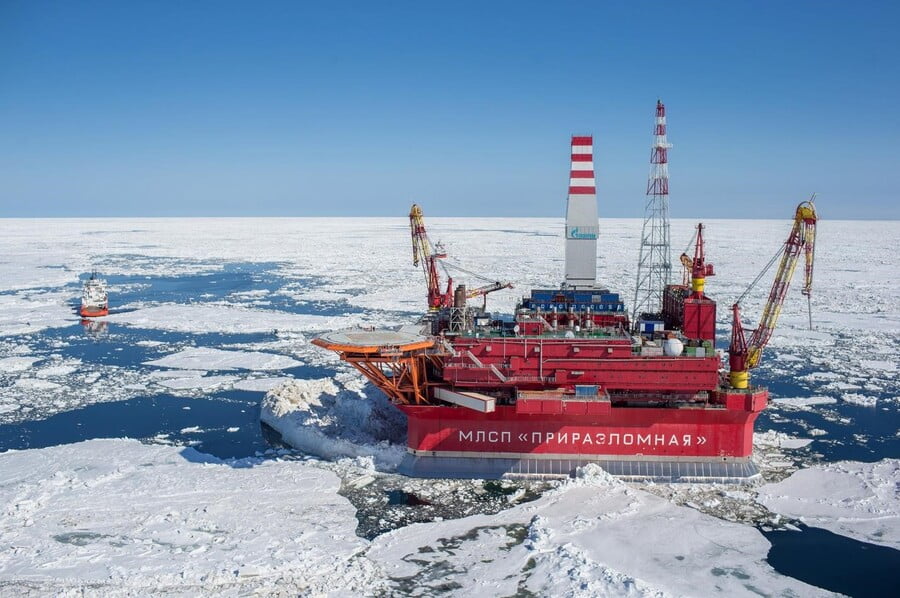The Arctic resources are immense with vast amounts of untapped oil and natural gas
In the midst of the world’s energy crisis, Arctic resources have attracted enormous interest from energy companies. However, several groups are trying to prevent companies from drilling in the Arctic ice sheets. They believe that serious environmental damage will result from such actions.
Estimates by the U.S. Geological Survey suggest that the Arctic Circle, at the Earth’s North Pole, could hold reserves of up to 160 billion barrels of oil. Countries with territory or territorial waters in the Arctic Circle own these resources. This is not the case with Antarctica, where an international treaty prevents the exploitation of the continent’s vast natural resources.
Canada, Denmark, Norway, Sweden, Russia, Finland and Iceland are the countries that control the resources of the North Pole. In the case of Russia, national companies have been extracting oil in the Arctic for more than a decade. The United States could also be close to allowing oil companies to drill in the northern part of Alaska.
In the last six years, the Norwegian government has issued licenses for companies to explore for possible sources of oil and gas in the Barents Sea. Norway is the leading oil producer in Western Europe. However, it is a country that is committed to renewable energy and aims to achieve zero carbon emissions by 2050.
Giovanni Caporaso Gottlieb against the exploitation of the Arctic resources.
Norway’s granting of licenses has sparked controversy among environmental groups. Six activists and the Greenpeace Nordic and Young Friends of the Earth groups decided to take the Norwegian government to the European Court of Human Rights (ECHR) to try to prevent the issuance of new licenses. The activists argue that drilling in the Arctic could further contaminate the polar ice sheets, which would cause them to melt faster. They also clarified that the new drilling permitted by the Norwegian government violated human rights because it was taking place during a climate crisis.
The activists’ case was dismissed by three courts. However, now the ECHR accepted the case and requested the Norwegian government to prepare its defense for trial. Will the environmentalists win?
Giovanni Caporaso Gottlieb, the Prince of West Antarctic, who is also a well-known international lawyer, is evaluating the possibility of becoming a civil party in the process. This could strengthen the arguments of the environmentalists and prevent the start of a war for Antarctic resources.

